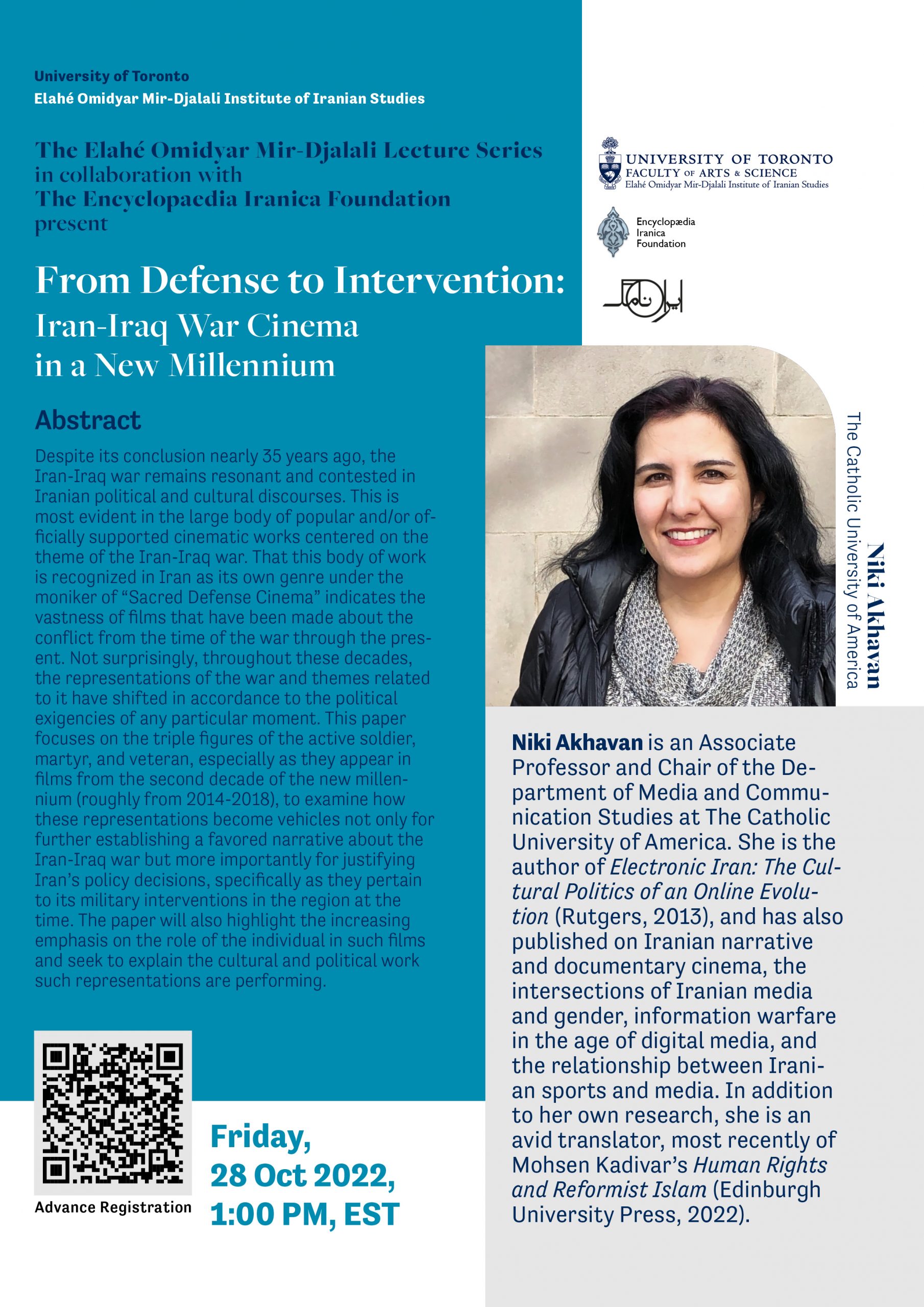
October 28, 2022
From Defense to Intervention: Iran-Iraq War Cinema in a New Millennium
Niki Akhavan
Abstract:
Despite its conclusion nearly 35 years ago, the Iran-Iraq war remains resonant and contested in Iranian political and cultural discourses. This is most evident in the large body of popular and/or officially supported cinematic works centered on the theme of the Iran-Iraq war That this body of work is recognized in Iran as its own genre under the moniker of "Sacred Defense Cinema" indicates the vastness of films that have been made about the conflict from the time of the war through the present. Not surprisingly, throughout these decades, the representations of the war and themes related to it have shifted in accordance to the political exigencies of any particular moment. This paper focuses on the triple figures of the active soldier martyr, and veteran, especially as they appear in films from the second decade of the new millennium (roughly from 2014-2018), to examine how these representations become vehicles not only for further establishing a favored narrative about the Iran-Iraq war but more importantly for justifying Iran's policy decisions, specifically as they pertain to its military interventions in the region at the time. The paper will also highlight the increasing emphasis on the role of the individual in such films and seek to explain the cultural and political work such representations are performing.
Bio:
Niki Akhavan is an Associate Professor and Chair of the Department of Media and Communication Studies at The Catholic University of America. She is the author of Electronic Iran: The Cultural Politics of an Online Evolution (Rutgers, 2013), and has also published on Iranian narrative and documentary cinema, the intersections of Iranian media and gender, information warfare in the age of digital media, and the relationship between Iranian sports and media. In addition to her own research, she is an avid translator, most recently of Mohsen Kadivar's Human Rights and Reformist Islam (Edinburgh University Press, 2022).


